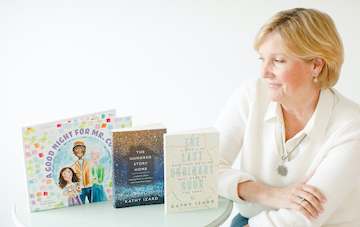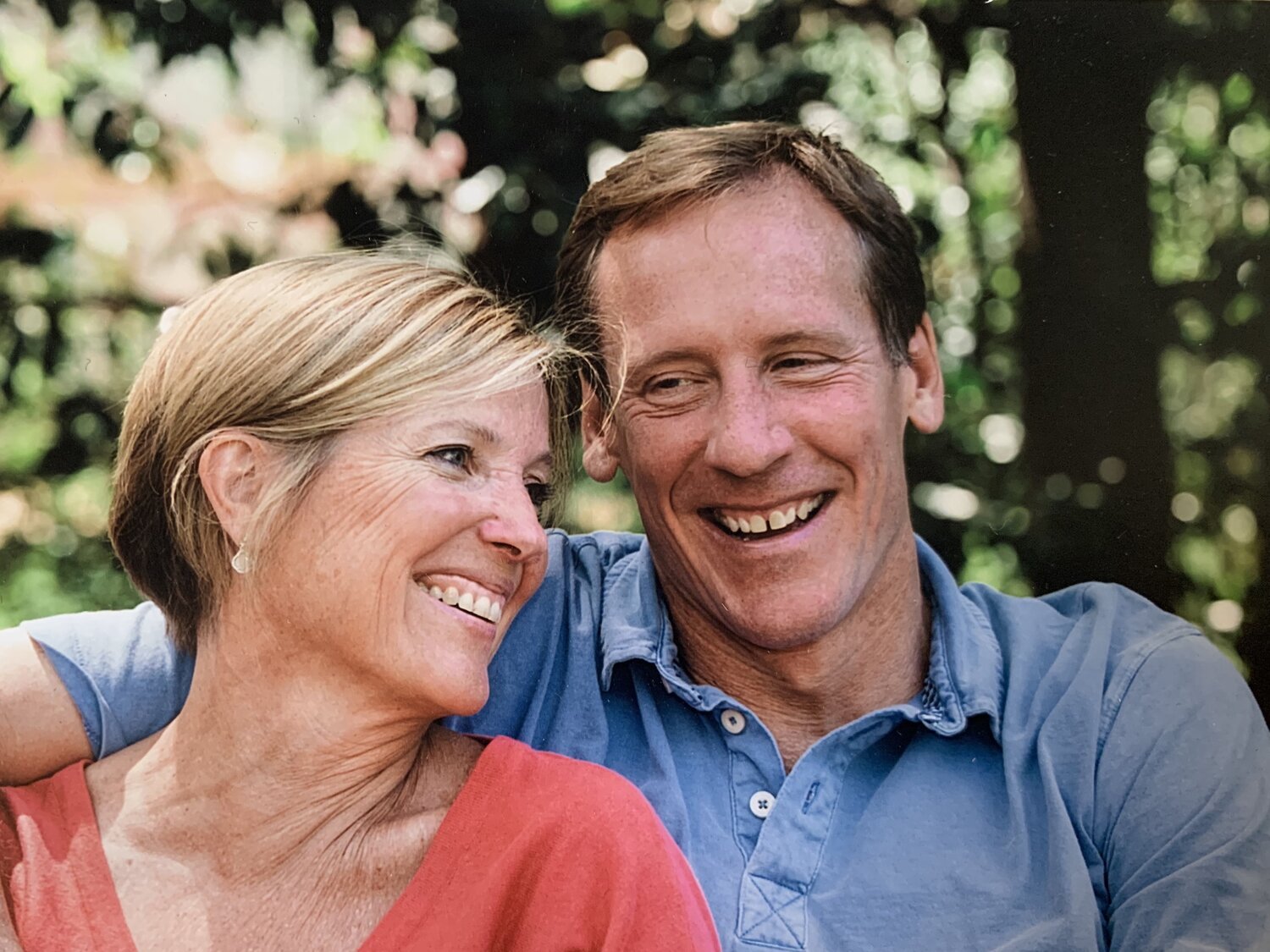Finding the Golden Glue
On February 22, 2013, my world turned upside down when I found myself in the passenger seat of an ambulance in Groton, Massachusetts, sirens blaring, going the wrong way down streets in order to save a life—my husband, Charlie.
I didn’t know at the time that Charlie, only 53-years-old, was having a heart attack and we had precious minutes left. The cause would not turn out to be heart disease, it was rare disease, Spontaneous Coronary Artery Dissection (SCAD). Dr Omar Ali miraculously saved his life and Charlie would become only one of ten male survivors of this devastating and dangerous condition.
You would have to understand who Charlie was eight years ago to fully know how shocking this was for both of us. A former two-time All-American lacrosse player, Charlie had maintained his peak physical fitness. He worked out every day, ran, played tennis and loved extreme sports like heli-skiing. Charlie’s diet matched his fitness—clean and healthy—except for his passion for chocolate chip cookies and ice cream.
Food and fitness, however, were not the problem. We would come to learn that there was no diet, no pill and no treatment for SCAD. There was no test to predict what had happened and only one research study in the world at Mayo Clinic that was trying to understand the condition. We would also learn that this disease which caused Charlie’s main cardiac artery to split and collapse without warning was not just in his heart, it was in every artery in his body. Which meant that at any moment, on any given day, it could happen again causing a fatal heart attack, stroke or aneurysm with no way to way to predict or prevent.
How do you live when the best medical experts say there is no cure? And how do you wake up wondering if today is the day you become a widow?
Those are the questions Charlie and I wrestled with the past eight years. But we are not alone. So many of us face unexpected diagnoses or unfair deaths and we have to find ways to fight the fear that comes with each. For me, medical emergency created a spiritual emergency. If medical science had no answers, I needed some theological certainty. Something that could help me live in faith not fear.
This book is how I wrote my way into understanding. That wild ambulance ride would not be last time we ended up in cardiac emergency, just the first time. As it turned out, in that waiting and even expecting Charlie to die, we learned how to live.
We learned to make choices about how we were spending our time. We began to find out what really mattered in this world. I stopped asking: what if Charlie dies? And I began asking: what if Charlie lives?
I wrote The Last Ordinary Hour: Living life now that nothing will ever be the same to help you ask the same questions in your life-- what really matters and how do you want to live? My new book is the story of how we learned to live with radical uncertainty and I hope our story can help you live in faith not fear.
The cover, designed by Jon Valk, has beautiful gold cracks along the surface. It relates to this passage in my book:
In Japan, there is an ancient art of Kintsugi—repairing broken pottery by filling the cracks with gold. Practitioners of this 400-year-old technique believe these imperfect yet restored pieces are even more beautiful once made whole again. This process of reassembling shards with such a precious metal also makes the original piece an even stronger vessel than before it was broken.
What if we could apply this philosophy to our own lives? Believing that after life-shattering events, we can become not only whole but even stronger than before. The question then becomes this: how do we discover the gold to bind our broken selves?
This book recounts the process of how I found the golden glue to repair my life. And I hope it helps you find yours as well.
No matter what unwanted diagnosis or unfair outcome you might be facing, I hope the pages of The Last Ordinary Hour help you rediscover the wonder in your own life, recognize the holy in your every day, and remember—always—that there is no such thing as an ordinary hour.
—Kathy
Kathy Izard is an award-winning author and speaker who helped bring transformation to Charlotte in homelessness, housing and mental health. Her work has been featured on the Today Show inspiring people to be changemakers in their communities. Her first memoir,The Hundred Story Home, received a Christopher Award for inspirational nonfiction. Kathy’s children’s book, A Good Night for Mr. Coleman was written to encourage kids to dream big and do good. Her newest work of inspirational nonfiction, The Last Ordinary Hour, releases on May 15, 2021.


